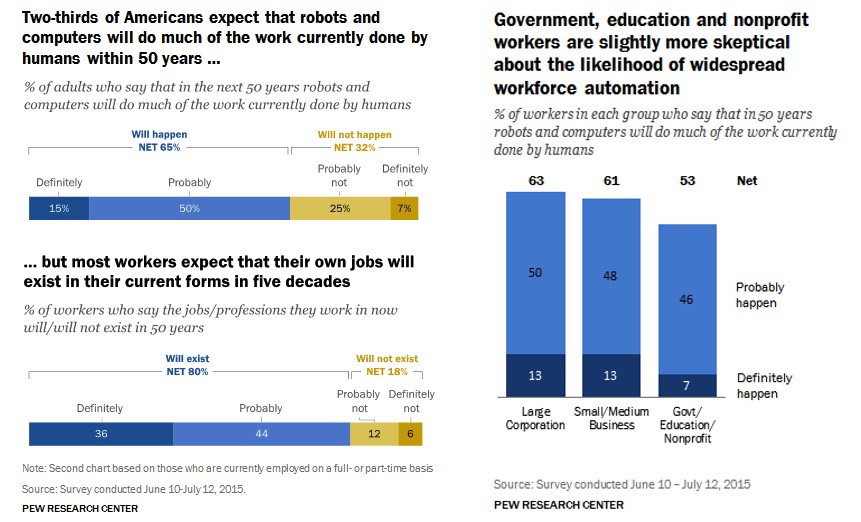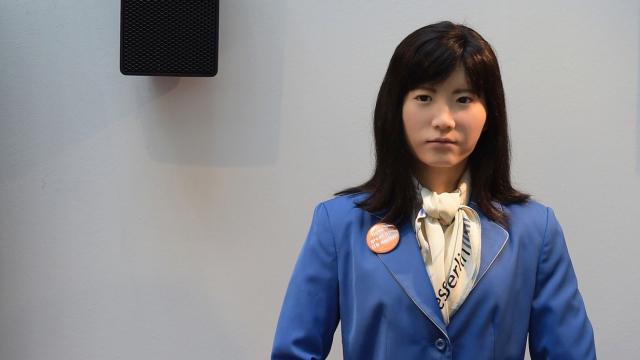Remember travel agents? Or Victrola repairmen? Their jobs disappeared as society became more technologically advanced. And a new study shows that most Americans believe robots will replace many human workers soon. But they overwhelmingly think their own jobs are safe.
Lead image: Robot developed by Toshiba stands at a welcome desk inside a tourism fair in Berlin (Tobias Schwarz/AFP/Getty Images)
The new Pew Research Center study found that most Americans strongly believe that the age of robotics will drastically change the job market in the next 50 years. But a healthy majority (80 per cent) believe that their own industries won’t be affected by this automation revolution.
“Robotic automation is something people sense is going to happen in the vague future, but I don’t think they’re necessarily drawing that connection to their own employment prospects, or their kids’ employment prospects,” Aaron Smith, an author of the Pew study, told the Wall Street Journal.
Overall, older and highly educated people are more sceptical that robots will be taking jobs away from human-Americans in the next 50 years.
From Pew Research:
Some 35% of 18- to 49-year-olds think it unlikely that robots and computers will do much of the work done by humans, compared with 27% of those ages 50 and older. And 37% of those with a college degree think that this outcome is unlikely (compared with 28% of those who have not attended college), as do 38% of Americans with an annual household income of $US75,000 ($99,757) or more (compared with 27% of those with an annual household income of less than $US30,000 ($39,903) per year).
The feelings of Americans on this issue were relatively consistent across different occupations. Essentially, most people think their jobs will be untouched by the robot revolution, and blue collar workers in the United States are the least likely to believe that their own jobs will be replaced by robots.
For instance, 41% of workers whose jobs involve mostly manual or physical labour expect that their current jobs will “definitely” exist in their current forms in 50 years, as do 34% of those who describe their current occupations as “professional.” By contrast, just 23% of those who currently work in a managerial or executive role expect that their current jobs will exist unchanged for the next five decades. But overall, a substantial majority of workers across a range of categories express confidence in the long-term staying power of their current jobs or professions.
Those who worked in government, education, and the nonprofit sector were most likely to be sceptical that their jobs would be replaced.

Graphs from the Pew Research Center based on surveys conducted in June and July of 2015
So whether you think your own job will be replaced by a robot or not, only time will tell. We’ve seen upheavals in some sectors that have been relatively swift (as was the case with travel agents at the turn of the 21st century) and other automation processes that ebb and flow.
In the case of the latter, BMW recently decided that they’d hire more human workers in favour of robots, ostensibly because so many of the tasks were too difficult for robots. But the unspoken part of the story is that globalization has suppressed wages to the extent that hiring dozens of cheap workers is often less expensive than a robot in some fields.
The robot revolution is here. But tech adoption and automation are never set on a predictable and predestined course. Will your job be taken by a robot? At least on this issue, Americans are still optimistic that they won’t be.
